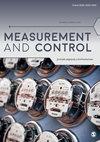第四章战略与组织绩效:风险管理体系发展的作用
IF 2
4区 计算机科学
Q4 AUTOMATION & CONTROL SYSTEMS
引用次数: 5
摘要
本研究探讨风险管理系统(RMS)、策略与组织绩效之间的关系。现有的研究广泛地研究了战略对组织绩效的影响。也有越来越多的文献表明,RMS积极影响组织目标的实现。然而,只有少数概念性论文(没有经验证据)研究战略与RMS之间的关系。我们研究了不同的策略类型(防御者、分析者、勘探者和反应者)是否诱导了不同水平的RMS发展,从而间接或直接影响绩效。我们使用回归分析和调查数据来检验所提出的关系。我们的研究结果证实了战略类型和RMS发展对绩效的直接影响。我们确认,在五个绩效指标(盈利能力、销售增长、市场份额、新产品开发和客户满意度)上,勘探者比防御者、分析者和反应者表现得更好。我们还发现,RMS更发达的公司在非财务绩效方面表现更好(以新产品开发来衡量)。与普遍的证据相反,我们没有发现财务绩效的显著结果。此外,我们的研究结果表明,RMS发展在策略类型与绩效的关系中没有中介作用。这意味着RMS和战略作为独立变量,各自影响组织绩效。本文章由计算机程序翻译,如有差异,请以英文原文为准。
Chapter 4 Strategy and Organizational Performance: The Role of Risk Management System Development
Our study investigates the relationships between risk management systems (RMS), strategy and organizational performance. The existing research has extensively studied the effect of strategy on organizational performance. There is also a growing body of literature suggesting that RMS positively influence the achievement of organizational objectives. However, there are only a few conceptual papers (and no empirical evidence) on the relationship between strategy and RMS. We investigate whether different strategy types (defender, analyzer, prospector, and reactor) induce different levels of RMS development and, hence, affect performance indirectly, as well as directly. We use regression analysis and survey data to test the proposed relationships. Our results confirm the direct effects of strategy type and RMS development on performance. We confirm that prospectors perform better than defenders, analyzers, and reactors across five measures of performance (profitability, sales growth, market share, new product development, and customer satisfaction). We also find that companies with more developed RMS perform better in terms of non-financial performance (measured by new product development). Contrary to the prevailing evidence, we do not find significant results for financial performance. Moreover, our findings show that there is no mediating effect of RMS development in the relationship between strategy type and performance. This implies that RMS and strategy act as independent variables, each individually affecting organizational performance.
求助全文
通过发布文献求助,成功后即可免费获取论文全文。
去求助
来源期刊

Measurement & Control
工程技术-仪器仪表
自引率
10.00%
发文量
164
审稿时长
>12 weeks
期刊介绍:
Measurement and Control publishes peer-reviewed practical and technical research and news pieces from both the science and engineering industry and academia. Whilst focusing more broadly on topics of relevance for practitioners in instrumentation and control, the journal also includes updates on both product and business announcements and information on technical advances.
 求助内容:
求助内容: 应助结果提醒方式:
应助结果提醒方式:


